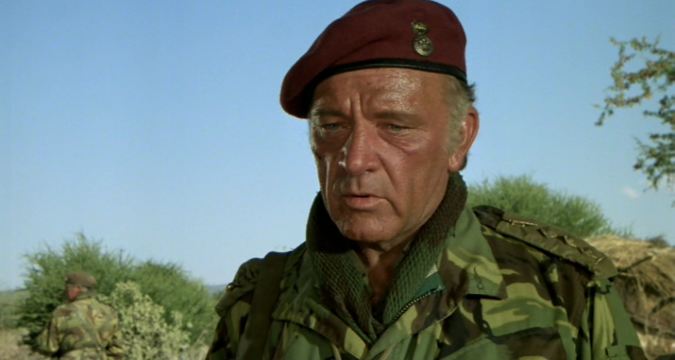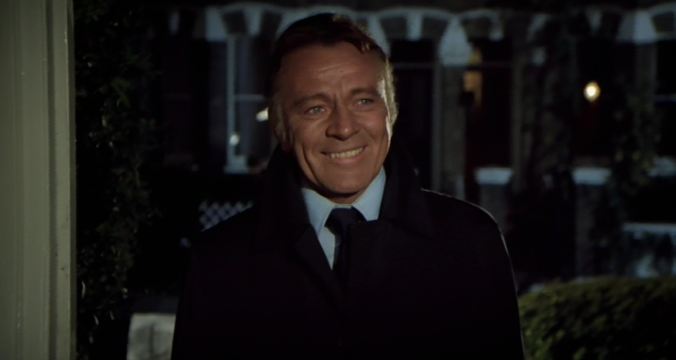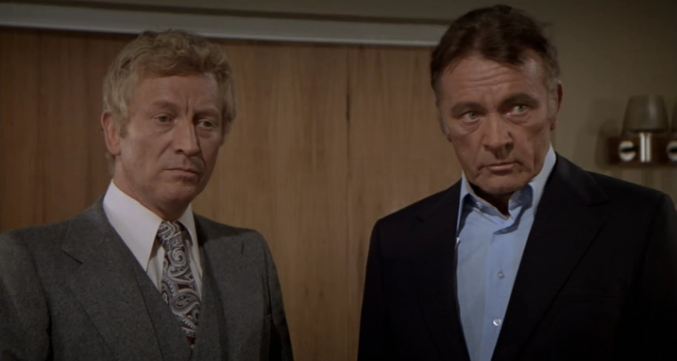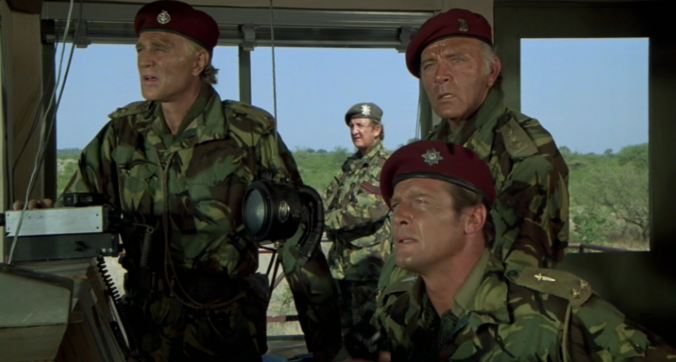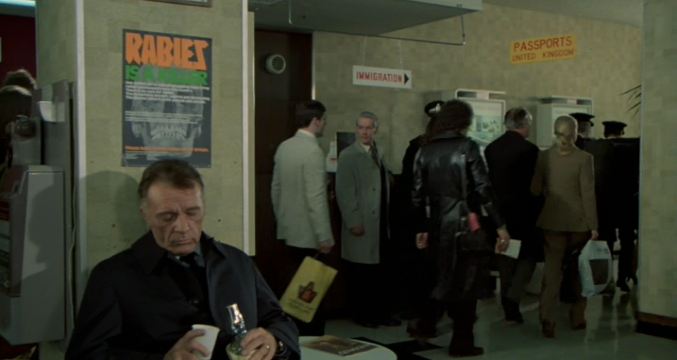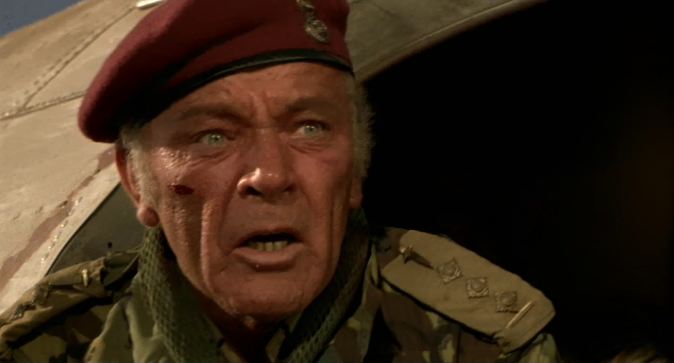Richard Burton drinks his way in to The Wild Geese, rather aptly. Burton seems something of a shadow of the previous powerhouse he has been, but this is all right as The Wild Geese is partially about fighting men who are somehow past it. Burton is shocking static for much of the film though, and although he begins the shoot with sunken cheeks and a deathly aspect, he seems perkier and slightly healthier by the end, if a little stooped.
During the 1980s, The Wild Geese must have been on television at least once a year, although it fel like once a month, and this gave many of us a chance to get to know it rather well. What I first saw in it was not the military action, although the taking of the 200 strong military camp by Burton’s crack team is pretty exciting; but rather it was the heart-string tugging sub-plot of Richard Harris and his son. Even from the off, the child that plays Emil is so cute, so polite and such a model l’il darling, that the producers are guaranteeing some kind of pay-off, even if the rest doesn’t work.
There was a time however, when the movie was forgotten, probably after every person of the target generation was tired to death of it. The Wild Geese has little to offer subsequent generations. It attempts to deal with racism by being racist, and offering an ongoing racism dialogue between . The same applies to that other military staple, homophobia, presented in the loveable form of the character Witty, played by Kenneth Griffith. Witty comes to a sad end being hacked to death by a group of large African men, and even manages to fantasise about them as he is killed.
Then there was a time when somebody would say: What’s the film that begins with Roger Moore forcing a playboy criminal to eat a packet of drugs? Well, it was The Wild Geese. The scene does for attitude to narcotics what the racism and homophobia scenes do for the rest of the movie, and basically presents an appealing message to its target audience.
I think a lot was made of the cast of The Wild Geese in its day; Richard Burton! Roger Moore! Richard Harris! All together?! Surely some mistake. 21st Century viewers would be well to wonder what the big deal was, but these three British actors still had immense pulling power at the time, and the film was guaranteed to be a smash. As soon as you watch it you’ll notice one further cementing feature, which are credits by Maurice Binder, whose style you will recognise from the many James Bond films he made opening sequences for.
Roger Moore had just made The Spy Who Loved Me, but Richard Harris (Captain Rafer Janders) and Burton were far from the top of the hill. Burton had just made Equus and The Medusa Touch, both of which have great qualities, but everyone had great plans for The Wild Geese, and despite much absurd plotting in the first half an hour, it pretty much came to fruition.
I’m not sure why Roger Moore became the action hero he was. From this movie he went on to make in quick succession North Sea Hijack, Escape to Athena, Moonraker and The Sea Wolves, before finding something perhaps more suitable to his eyebrow raising talents, in The Cannonball Run.
The supporting cast of The Wild Geese is a work to behold, in and of itself. There’s Stewart Granger and Barry Foster, and to complete this trio of evil is the Barrat man, or the Two Tribes man himself, Patrick Allen. Ronald Fraser, known for countless TV and film roles from Flight of the Phoenix, The Killing of Sister George and The Comic Strip, appears as a Scot, which is surprisingly acceptable. The cast are like the characters, rounded up, and thrown into action.
The start of The Wild Geese is vague, and supposed to show the viewer the film’s characters in action. Burton, in Stewart Granger’s office, downs a large glass of whisky by holding the glass with both hands. Later He and Richard Harris make an awful attempt to play their characters playing drunks in a casino. There is a terrible irony in there somewhere though I’m not sure what it is. There is also a point at which the bonne-homie and fun is probably real, when Burton meets Sandy, played by ____. Sandy is pruning his roses when Burton’s character turns up to invite him on the mission, and the two men are overjoyed to see each other, which they haven’t done since The War (that means WWII by theway.) Back in 1957, Richard Burton and ___ really did participate in World War II, when they made . . . (to be finished)

